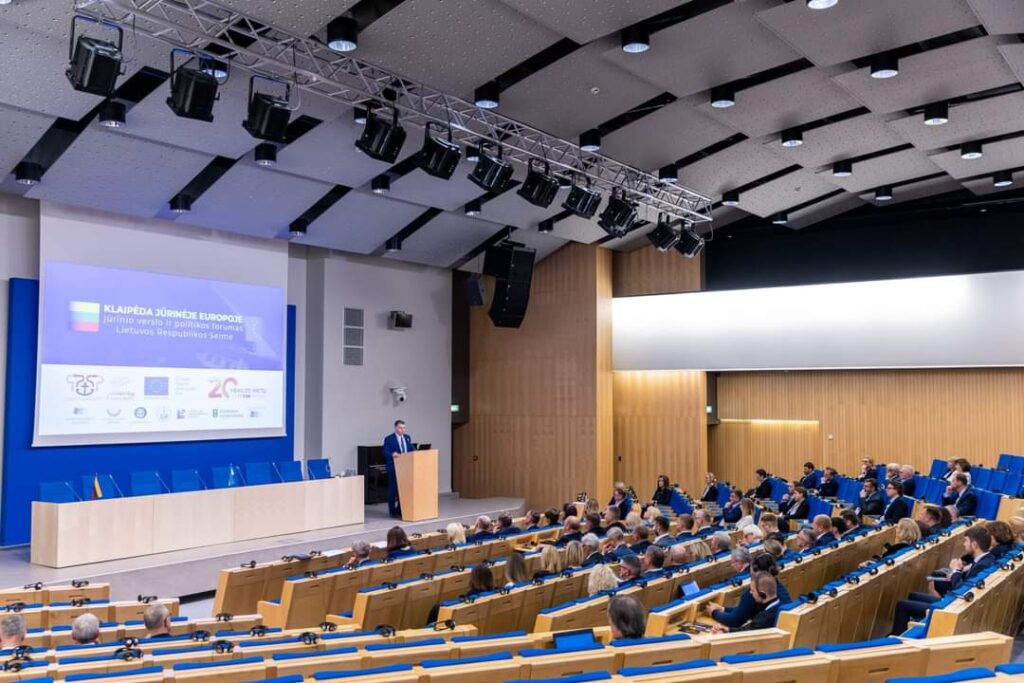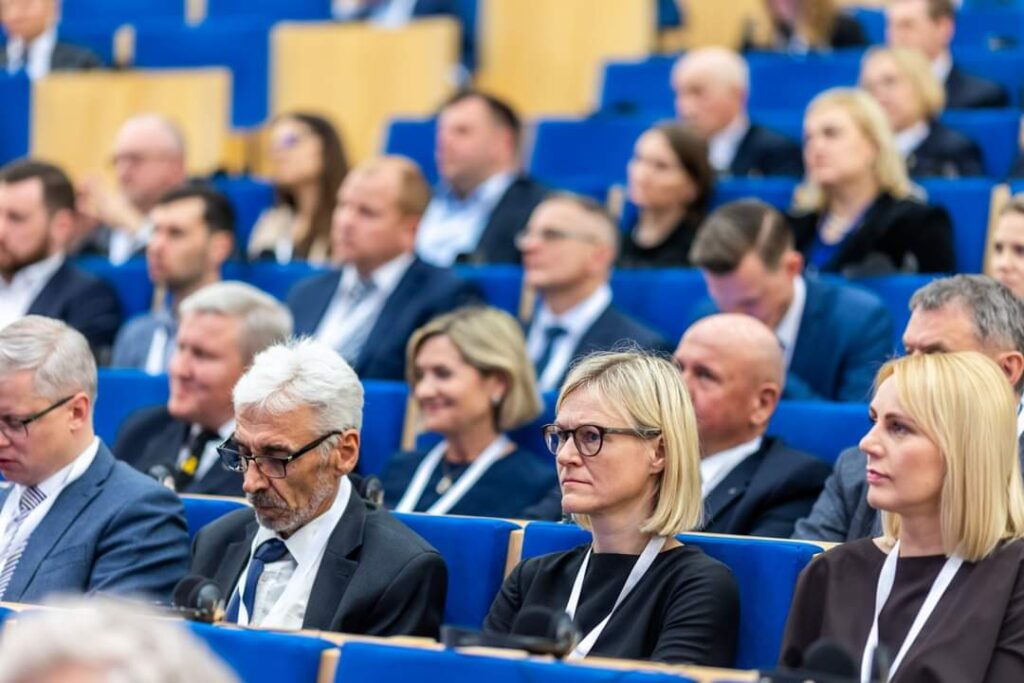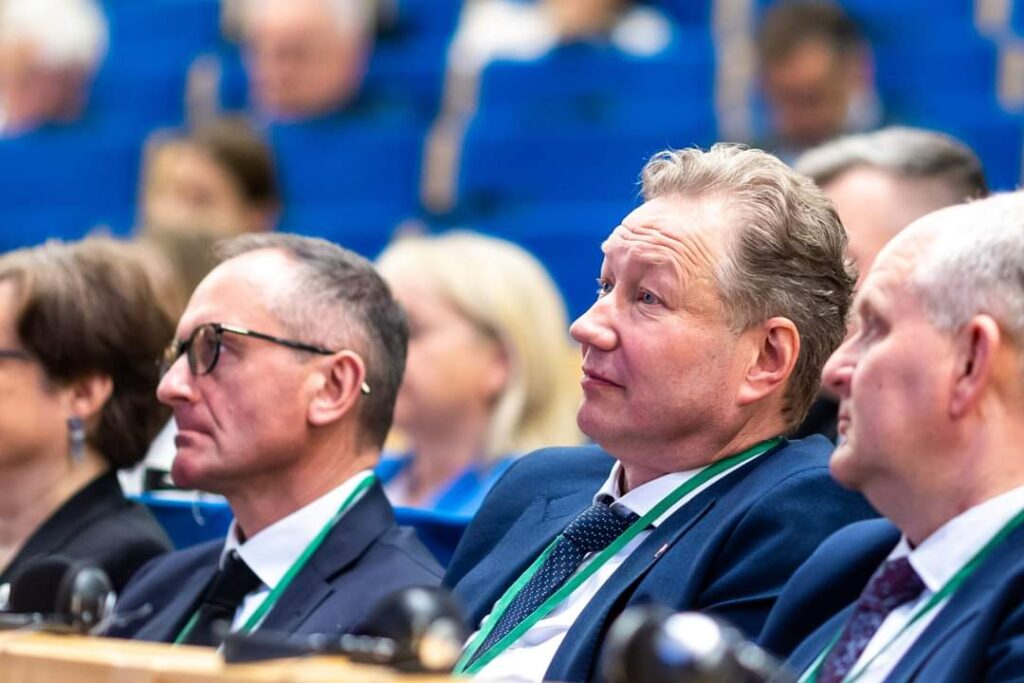The event focused on all aspects of the development of the blue economy, from the inculcation of maritime identity in comprehensive schools to the high level research, the development of innovative technologies, the promotion of business based on them, and a coherent public policy for the development of the maritime sector. A large group of representatives of the institutions interested in the dissemination of science, business, and maritime culture of the coastal region came to the first Forum of this kind at the national legislative body of Lithuania. A presentation on the role of Klaipėda University in the formation of the regional maritime culture as well as developing innovations and participating in the sustainable development of smart coastal cities in collaboration with the EU-CONEXUS partners was given at the Forum by prof. dr. Artūras Razbadauskas, Rector of Klaipėda University.
When welcoming the participants of the event in the Seimas, Minister of the Environment Simonas Gentvilas emphasised that the maritime sector and the potential of Klaipėda, which had possibly not yet been fully evaluated, were very important for the State of Lithuania which was setting goals for sustainable development. “Challenges for the future lie ahead: to deliver the innovations necessary for the world,” said Gentvilas, a politician from Klaipėda, in his welcome address.
The presentations of the forum focused on the strategy and vision of Lithuania as a maritime state (prof. dr. Valdas Rakutis, Member of the Seimas) and the goals of the economic development strategies for Klaipėda Region and City and their implementation (Eglė Stonkė, Executive Director of the Klaipėda Region Association). Algis Latakas, Head of the Klaipėda State Seaport Authority, presented the goals of the Green Port conception, while the role of the LNG Terminal in creating Lithuania’s energy independence was reviewed by Jurgita Šilinskaitė-Venslovienė, Head of the LNG Commerce Department of AB Klaipėdos Nafta. The presentations were also given by the managers of the Klaipėda State Seaport companies Vakarų laivų gamykla and Bega and by Vaclav Stankevič, Director of the Lithuanian Maritime Academy.
“It is important for us to take a message to Lithuania about science as a major element of the potential spurt in the maritime sector. Together with EU-CONEXUS partners, we strive for sustainable development, and we need to develop marine research in a targeted way. If we expect advanced technology and technological updating of the maritime sector, we must invest in the training of professionals in this field as well as encourage and support technical thought. Today, we wanted to show that the sea is a source of inexhaustible opportunities, yet in order to see and exploit them, we need intellectual skills and specific competencies. The points in the resolution of the event focus on the need for innovative solutions in the maritime economy. Progress and innovation are created by people using the tools provided by science. Apparently, we have talked a lot on the subject, and everything is clear to everyone, however, Klaipėda University, the only state-funded university research institution, receives less than 50 percent from the state budget. The state does not contribute to the maintenance of the only research ship-laboratory Mintis in Lithuania”, – the often disappointing examples of the state’s view on the specificity of the seaside were presented by the Rector of KU prof. dr. Artūras Razbadauskas.
The participants of the Forum drafted a 10-point resolution On Increasing the Competitiveness of the Lithuanian Maritime Economy, to be submitted to the national legislators and governmental structures.
 |
 |
 |







